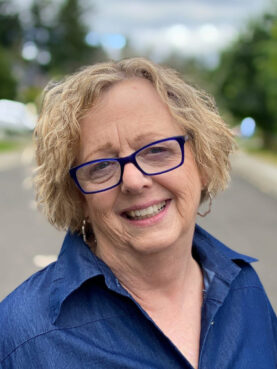
(RNS) – Trauma-informed care is a growing movement around the world, and over the past decade spiritual directors have increasingly used these methods to deal with clients suffering from religious trauma and spiritual abuse.
Seminaries are now incorporating trauma-informed care as part of their clinical pastoral education programs religious leaders in more progressive denominations say more needs to be done to make congregations healthy and safe places.
“When I look at the church and some of the culture of what’s happening right now, where so many people don’t even want to come to church, it emphasizes the feeling of not having confidence in the church, or not feeling safe. to feel in church. not feeling a sense of connection,” says Lisa Taylor, a spiritual care practitioner at the CHRIS 180 Institute for Spiritual Health, where she trains clergy and spiritual care providers. “One of my greatest desires is for the church to become a sacred sanctuary where people can feel safe to be who they are.”
Trauma-informed care became a broader phenomenon in the 1970s as awareness emerged of what combat veterans experienced in Vietnam and how it spread to their children, Taylor said.
Trauma-informed care assumes that trauma happens in the body and that changing the mind does not address the underlying roots of the trauma.

Janyne McConnaughey. (Thanks photo)
“Denying that something happened doesn’t actually help us very much because it’s in our bodies,” says the Rev. Shannon Michael Pater, a Fort Worth, Texas, pastor at a United Church of Christ congregation, which also has its own has a consultancy practice.
Janyne McConnaughey, the author of “Trauma in the Pews,” said the church often views issues of trauma as spiritual problems that can be addressed by reading the Bible or praying more.
“This person has been trying to do that for years, and it hasn’t solved the problem,” said McConnaughey, who lives south of Seattle. “They just leave more defeated than helped, and more ashamed of their failure.”
A trauma-oriented or integrated approach is about creating a sense of safety. It emphasizes the body and therefore many of the exercises are body-oriented.
“I’m really noticing body language now,” says Karen Bartlett, a trauma-informed spiritual director in Wichita, Kansas. “I notice the tone of the voice. I notice words being used, and when trauma starts to emerge, I look at what they’re feeling in their body and say, “Okay, what are you feeling right now as you speak about this? ‘ And if it gets too uncomfortable, we stop.”
Danielle Tumminio Hansen, professor of practical theology at Emory University, warns her students not to make assumptions.
“Curiosity is one of their greatest assets,” she said. “Their ability to come in and ask open-ended questions, to be very good active listeners, will help prevent them from making judgments about people.”

The Rev. Shannon Michael Pater. (Thanks photo)
A big part of being trauma-informed involves being aware of possible past experiences that can shape how someone shows up in spiritual settings, such as church or Bible study. “I don’t assume that God is safe,” Bartlett said.
“The words ‘God’ and ‘Father’ are extremely activating for many people who have had a trauma, and therefore determine everything in the way I talk to a manager. I listen carefully to where attachment issues may play a role, where spiritual abuse by leaders may play a role.”
For Pater, the trauma does not disappear completely. It is integrated into the other stories people believe about God. A useful illustration, Pater finds, is found in John 20: “The character of the risen Jesus is still presented there as a wounded character. He still has the wounds in his hands, even in his resurrected self,” Pater said. “The scars may remain, but we can integrate these stories into our fabric and move on.”
“Often the trauma returns at another time because the person has been triggered in some way. But the difference with return is that the victim or person who has suffered harm now has a toolbox to draw from,” said Hansen.
Despite the damage of spiritual abuse, communities of faith can still be places where connection and safety are found. “I believe churches can exist without spiritually abusing people, but to do that they must understand trauma,” McConnaughey said.
“One of the things that religion can do for us is give us rituals that we participate in as a community,” Pater said. “We can make communities vulnerable enough and ritualize our memory and ritualize ceremonies of integration, ceremonies of healing, actually ceremonies of community.”